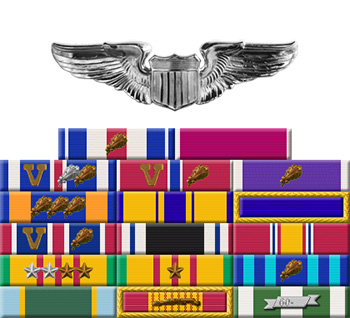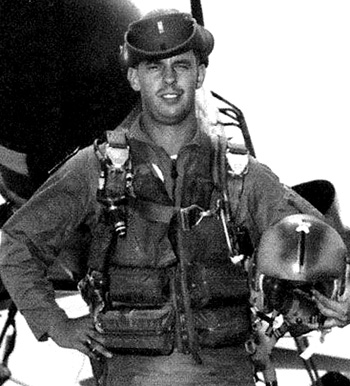
|
William W. "Bill" Butler, DVM |
 |
|||
| Rank, Service | ||||
Captain O-3, U.S. Air Force |
||||
| Veteran of: | ||||
|
||||
| Tribute: | ||||
Bill Butler was born on November 29, 1941, in Grass Valley, California. He was commissioned a 2d Lt in the U.S. Air Force through the Air Force ROTC program on December 18, 1963, and went on active duty beginning March 4, 1964. Lt Butler next completed Undergraduate Pilot Training and was awarded his pilot wings at Reese AFB, Texas, in March 1965, followed by F-102 Delta Dagger Combat Crew Training from May to October 1965. His first assignment was as an F-102 pilot with the 94th Fighter Interceptor Squadron at Selfridge AFB, Michigan, from November 1965 to February 1967, and he then attended F-105 Thunderchief Combat Crew Training from February to July 1967. Capt Butler served as an F-105 pilot with the 44th Tactical Fighter Squadron at Korat Royal Thai AFB, Thailand, from August to October 1967, and then with the 469th Tactical Fighter Squadron at Korat from October 1967 until he was forced to eject over North Vietnam and was taken as a Prisoner of War on November 20, 1967. After spending 1,942 days in captivity, he was released during Operation Homecoming on March 14, 1973. Capt Butler was briefly hospitalized to recover from his injuries at Travis AFB, California, and then received an Air Force Institute of Technology Assignment to attend the University of California from September 1973 until he left active duty on June 30, 1974. After leaving the Air Force, Bill completed his Doctor of Veterinary Medicine degree, and practiced as a Veterinarian until his death on March 11, 2013. He was buried at Arlington National Cemetery. |
||||
|
||||

